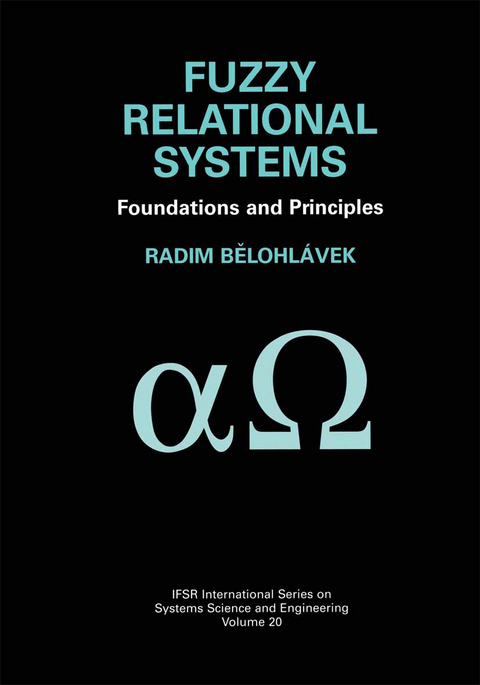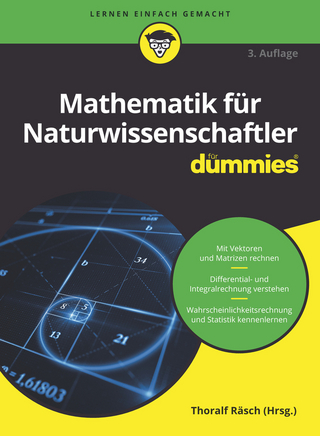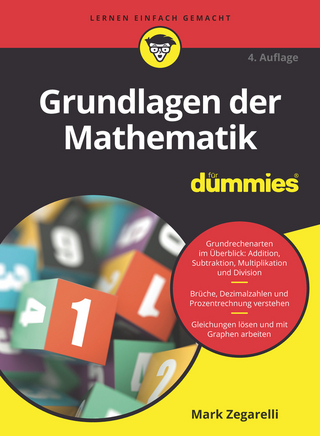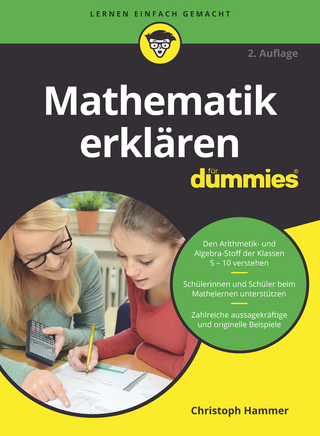
Fuzzy Relational Systems
Kluwer Academic/Plenum Publishers (Verlag)
978-0-306-46777-6 (ISBN)
1. Preliminaries.- 1.1 Sets, relations, mappings.- 1.2 Ordered sets, lattices.- 1.3 Tolerances, equivalences.- 1.4 Algebras.- 2. Fuzzy Approach, Graded Truth, and Structures of Truth Values.- 2.1 Fuzzy approach: from resolving paradoxes to engineering applications.- 2.2 Graded truth and structures of truth values.- 2.3 Residuated lattices.- 2.4 Residuated lattices and t-norms.- 2.5 Bibliographical remarks.- 3. Fuzzy Structures.- 3.1 Fuzzy sets and fuzzy relations.- 3.2 Fuzzy logic: syntax and semantics.- 3.3 Similarity issues.- 3.4 Morphisms, products, substructures.- 3.5 Representation by crisp structures: cutlike semantics.- 3.6 Algebras with fuzzy equalities.- 3.7 Many-sorted case.- 3.8 Bibliographical remarks.- 4. Binary Fuzzy Relations.- 4.1 Operations and properties of binary fuzzy relations.- 4.2 Similarity: fuzzy equivalences.- 4.3 Hierarchy: fuzzy order.- 4.4 Bibliographical remarks.- 5. Object-Attribute Fuzzy Relations and Fuzzy Concept Lattices.- 5.1 Conceptual granulation: fuzzy context, fuzzy concepts, and fuzzy concept lattice.- 5.2 Similarity and logical precision.- 5.3 Fuzzy Galois connections.- 5.4 Main theorem of fuzzy concept lattices.- 5.5 Bibliographical remarks.- 6. Composition and Decomposition of Fuzzy Relations.- 6.1 Composition of fuzzy relations.- 6.2 Decomposition: fuzzy relational equations.- 6.3 Bibliographical remarks.- 7. Miscellanea.- 7.1 Fuzzy closure operators and similarity spaces.- 7.2 Applications of selected results to some problems and models.- 7.3 Fuzzy logic with truth degrees in residuated lattices.- 7.4 Bibliographical remarks.- References.
| Reihe/Serie | Ifsr International Series on Systems Science and Engineering ; 20 |
|---|---|
| Zusatzinfo | XII, 369 p. |
| Verlagsort | New York |
| Sprache | englisch |
| Maße | 178 x 254 mm |
| Themenwelt | Mathematik / Informatik ► Mathematik ► Allgemeines / Lexika |
| Mathematik / Informatik ► Mathematik ► Angewandte Mathematik | |
| Mathematik / Informatik ► Mathematik ► Logik / Mengenlehre | |
| ISBN-10 | 0-306-46777-1 / 0306467771 |
| ISBN-13 | 978-0-306-46777-6 / 9780306467776 |
| Zustand | Neuware |
| Haben Sie eine Frage zum Produkt? |
aus dem Bereich


